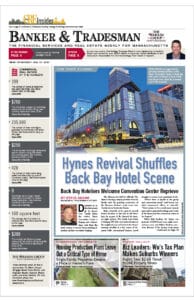Many commercial leases provide for automatic extension of the term unless one party notifies the other in writing within a certain timeframe that it desires not to extend the lease term – but what constitutes “a certain timeframe” can be a matter of debate.
The Massachusetts Appeals Court recently decided a case addressing the mechanics of such a provision in Patriot Power LLC v. New Rounder LLC, No. 16-P-420 (March 13, 2017), in which the issue was whether tenant effectively gave notice that it desired to let a commercial lease expire.
The landlord sued, seeking a declaration that the tenant had not given proper notice of its intention to let the lease expire, and for unpaid rent. As with many cases which go to trial, there was conflicting oral testimony, and the case turned on which party bore the burden of proof. The trial judge ruled that the plaintiff landlord had the burden of proof, and a jury verdict for tenant resulted. The Appeals Court reversed, holding that the burden of proof should have been placed upon the defendant tenant to show that it properly notified the landlord that it desired to let the lease expire.
The lease in question provided that it “shall be automatically extended for additional successive renewal terms of one year each unless … written notice [was sent not] … more than 12 months or less than six months prior to the expiration of then-current lease period. Time is of the essence.”
The landlord asked the tenant to sign some documents in connection with a refinancing, which were ultimately returned by the tenant approximately 12 days prior to the deadline by which notice was to be sent. There was disagreement as to whether the package containing the signed refinancing documents also contained a letter notifying landlord of tenant’s desire to let the term of the lease expire.
There was conflicting testimony at trial between the parties’ respective administrative assistants as to the contents of that package. Because the tenant was attempting to end its contractual obligation and had to serve timely written
notice that it was allowing the lease to expire, the Appeals Court held that burden of proving satisfaction of that condition should have been placed on the tenant, and the case was remanded for retrial.
Patriot Power illustrates the importance of keeping impeccable records of all lease-related deadlines, and confirming in each instance that notice has been timely and properly given pursuant to the explicit terms of the lease. Requiring a delivery receipt helps demonstrate compliance with lease notice requirements, but a receipt is not of much help if, as in Patriot Power, multiple different documents are placed in the same envelope, without a cover letter listing the contents.
Sander A. Rikleen is a partner in Sherin and Lodgen’s Litigation Department; his email address is srikleen@sherin.com. Jennifer L. Ioli is an associate in the firm’s real estate department; her email address is jlioli@sherin.com.











